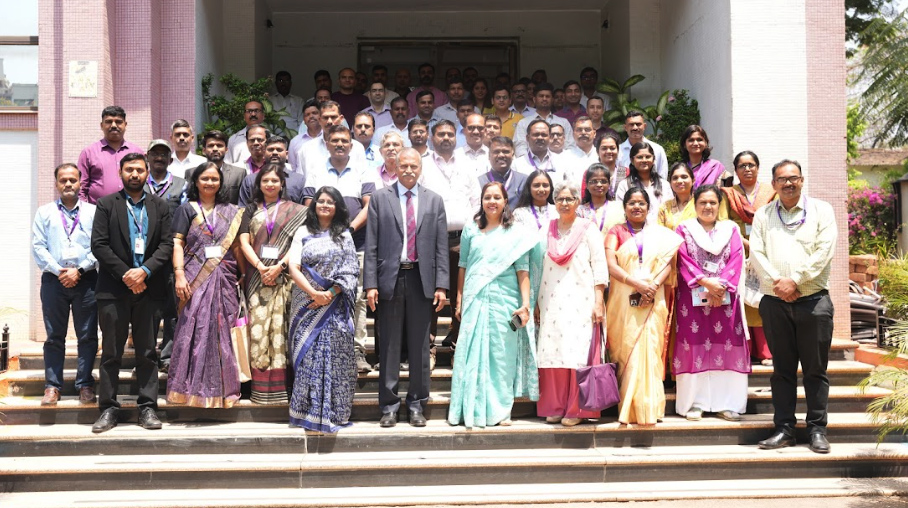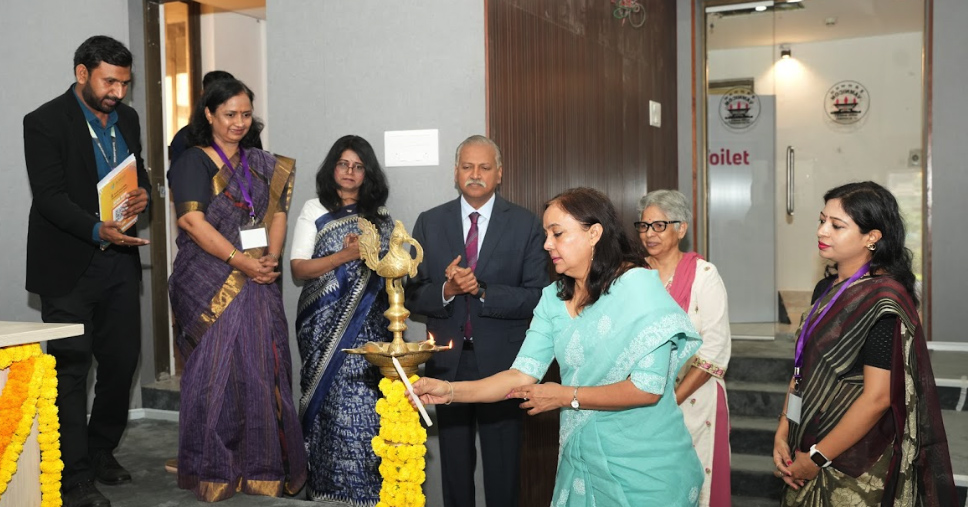The ICSSR-sponsored National Seminar on Empowering Women Farmers Through Sustainable Agricultural Practices was successfully organized by Prin. L. N. Welingkar Institute of Management Development & Research (PGDM) WeSchool, Mumbai, and Vaikunth Mehta National Institute of Cooperative Management (VAMNICOM), Pune.
As part of the Vision Viksit Bharat@2047 initiative, the seminar brought together policymakers, academicians, researchers, social workers, cooperative leaders, NGOs, and students to discuss the role of women in agriculture, their challenges, and strategies for sustainable livelihoods. The discussions focused on gender-inclusive institutional frameworks, Farmer Producer Organizations (FPOs), cooperatives, and rural development initiatives.
Dr. Hema Yadav, Director of VAMNICOM, delivered the welcome address, emphasizing the importance of financial inclusion, capacity building, and cooperative models in empowering women farmers. In the inaugural address, Prof. Dr. Uday Salunkhe, Group Director, WeSchool, stressed the need for entrepreneurship development and policy advocacy to strengthen women’s participation in agribusiness.
Keynote speakers Dr. Sangeeta Shete, a Gender & Social Development Specialist with the SMART Project, Government of Maharashtra, and Dr. K. Satya Lakshmi, Director of the National Institute of Naturopathy (NIN), Pune, provided insights into gender-sensitive agricultural policies and sustainable farming practices.
Dr. Shete discussed socio-economic barriers in farming and the need for inclusive policies that ensure equal access to resources and technology. Dr. Lakshmi focused on organic farming, climate-smart agriculture, and the role of women-led FPOs in promoting sustainable agricultural growth.
The seminar featured 25 research paper presentations from academics and practitioners across India. The studies explored financial inclusion strategies for improving credit access and micro-financing options for women farmers, the role of digital platforms, mobile applications, and AI-driven tools in enhancing agricultural productivity for women, case studies of successful women-led agribusiness enterprises in dairy, organic farming, and agro-processing, and innovative approaches to climate resilience and sustainable farming practices.
A significant highlight of the seminar was a panel discussion on Resilient Livelihoods for Sustainable Agribusiness Enterprises, which brought together experts from agricultural cooperatives, financial institutions, policy think tanks, and rural development organizations.
Discussions revolved around policy recommendations for gender equity in agriculture, enhancing financial accessibility for women-led agribusiness ventures, strengthening the integration of technology in women’s farming initiatives, and the role of cooperatives and self-help groups (SHGs) in enabling rural women to scale up their agricultural enterprises.
Aligned with India’s Vision Viksit Bharat 2047, the seminar emphasized the importance of multi-stakeholder collaboration, research-driven policymaking, and gender-focused initiatives in driving agricultural development.
Dr. Vaishali Patil, Sr. Associate Dean, WeSchool, and ICSSR Project Coordinator, delivered the closing remarks, stressing the need for continuous research and policy dialogue. A policy recommendation report based on seminar outcomes will be shared with government agencies, cooperatives, and research institutions.
The Indian Council of Social Science Research (ICSSR), Ministry of Education, Government of India, has awarded a collaborative research project on “Empowering Women Farmers through Sustainable Agricultural Practices” under the Vision Viksit Bharat@2047 initiative. Led by Dr. Vaishali Patil, Dr. Hema Yadav, Dr. Pravin Ghunnar, Dr. Mahesh Kadam, and Dr. Rachana Patil, the study aims to explore the role of Farmer Producer Organizations (FPOs) in promoting sustainable livelihoods and fostering women’s participation in cooperative and agribusiness models.
The national seminar and research project will provide policy recommendations and strategic frameworks to enhance women’s empowerment in agriculture, ensuring their increased recognition, participation, and support in India’s agrarian economy.















































